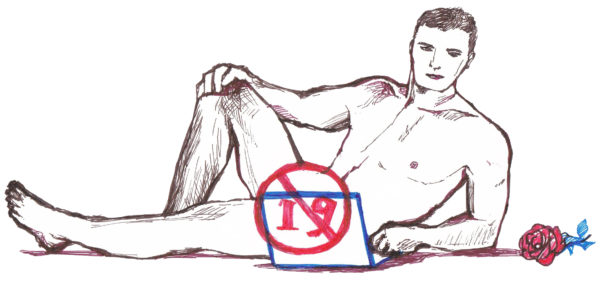How our social media personas affect relationships
That five-inch device in your pocket or in your hands (and what you’re probably using to read this article with) may be the reason why dating has become so complicated for our generation.
No, not the actual smartphone, but the social media apps found within the phone — apps like Instagram, Facebook, and VSCO.
In a Rolling Stone article about Millennials portraying a different version of themselves on their social media accounts, Elizabeth Sherman, a fellow Millennial, describes the idea of a ‘perceived dual personality.’
“The caricature of the commitment-phobic, sex-starved, Tinder-obsessed, strictly-a-casual-dater Millennial had to come from somewhere, and the Internet is probably to blame,” Sherman says. “Most Millennials project an outgoing version of ourselves on social media that we’re too cautious to actually live out in reality.”
Nearly all of us have this dual personality: the one we represent by posting weekend party shots or bathroom selfies onto our Instagram feed, and then the one we live every day through routine activities like picking out our outfits, watching our favorite TV shows (or, for Millennials, Netflix shows), and eating our routine meals. These alternative realities seem harmless, but it can be hard for prospective dating partners to know us personally as a result.
Social media unmistakably affects how we present ourselves. If that bathroom selfie you posted didn’t get the optimal number of likes on Instagram, would you wear that outfit again, knowing that your followers didn’t like that photo?
When stalking a potential partner’s Facebook profile, Tinder bio, or Instagram feed, it can be hard to cut through this online persona they have carefully curated.
It didn’t alway used to be like this. Relationships from the past — what my dad would describe as ‘the good old days’ — used to be pretty cut and dry.
There wasn’t your Facebook relationship status, an app which allowed you to rate the attractiveness of a person by swiping left or right, and private messaging for sliding into your crush’s DMs.
As a fellow teenager and Millennial, I’m certainly guilty of hiding behind my phone, in fear of rejection, to ask a girl out rather than walking up to her face to face.
Now, I don’t want this to come off as yet another article slamming the Millennial generation, but social media is definitely depriving us of some of our relationship skills.
Kentucky school teacher Paul Barnwell penned a piece for The Atlantic admitting he should take the blame, and not his Millennial students, for their lacking of basic communication skills, which he realized one day during an English in-class activity.
“We had held whole-class discussions surrounding school reform issues and also practiced one-on-one discussions,” Barnwell writes. “Even with plenty of practice, the task proved daunting to students. I watched trial runs of their podcasts frequently fall silent.”
“As I watched my class struggle, I came to realize that conversational competence might be the single-most overlooked skill we fail to teach our students. Kids spend hours each day engaging with ideas and one another through screens — but rarely do they have an opportunity to truly hone their interpersonal communication skills.”
Without having the time to type up thought-out responses on our phones or computers, we lose that ability to spark conversation, and ultimately find ourselves on a date with nothing to say.
How many times have you met someone in person for a minute, and instead of engaging in meaningful conversation with them, you friend them on Facebook? Or instead of asking them about what they like, you stalk their Instagram profile to find out their interests?
As a fellow teenager and Millennial, I’m certainly guilty of hiding behind my phone, in fear of rejection, to ask a girl out rather than walking up to her face to face.
Now don’t get me wrong — not everyone should be expected to act as they were while posing for an Instagram photo at a party. But the extroverted persona we radiate with our social media accounts hides the fact many of us are too shy to ask someone out or even break up with our partner in person.
For example, another new Millennial term ‘ghosting’ gives a name to the process of being too nervous to break up with someone face-to-face. ‘Ghosters’ break up with their partners by severing all communication with their partner, with no notice and with no explanation.
In 2016, the dating website Plenty of Fish collected data on Millennial singles and this concept of dating. They found that 78 per cent of respondents using the website had been ghosted by their partner.
And, even as early as 2014, according to a HuffPost/YouGov survey, 15 per cent of those respondents admitted to ghosting their partner as a way to break up with them.
Social media may be a great short term tool to ‘follow’ your crush, but the most impactful way to get to know a potential romantic partner is the old-fashioned way over coffee or, you know, by talking to them.
Personally, I’ve learned that you get to know someone a lot better by sitting down to talk with them in person rather than stalking their Tinder profile. Whether it’s watching their body language or physically hearing their stories, lifelong relationships are formed in these sit-down moments: not over a digital screen.

Maybe computers and technology just aren’t good for your junk after all. Graphic by Yimeng Bian, Graphics Contributor






